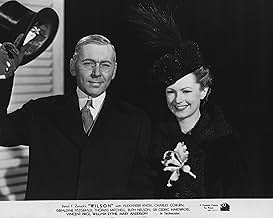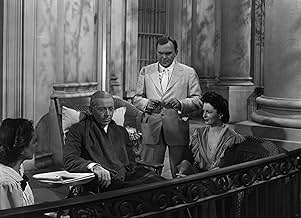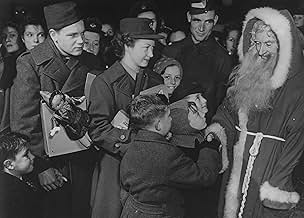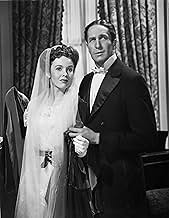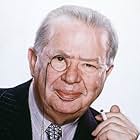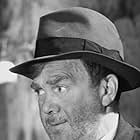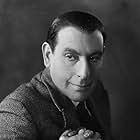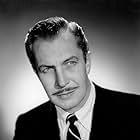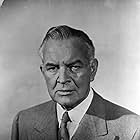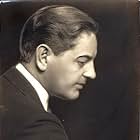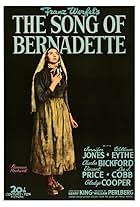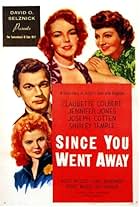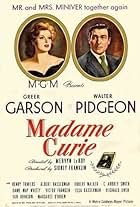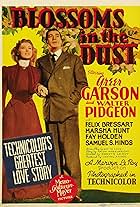IMDb RATING
6.3/10
1.7K
YOUR RATING
A chronicle of the political career of US President Woodrow Wilson.A chronicle of the political career of US President Woodrow Wilson.A chronicle of the political career of US President Woodrow Wilson.
- Won 5 Oscars
- 7 wins & 7 nominations total
Cedric Hardwicke
- Senator Henry Cabot Lodge
- (as Sir Cedric Hardwicke)
- Director
- Writer
- All cast & crew
- Production, box office & more at IMDbPro
Storyline
Did you know
- TriviaFranklin D. Roosevelt screened the film at the Second Quebec Conference in 1944. Among those watching were Winston Churchill who was decidedly unimpressed and left early to go to bed. For his part, Roosevelt, upon seeing the part with Wilson suffering a stroke while advocating for the League of Nations, remarked, "by God, that's not going to happen to me!"
- GoofsAs the Wilsons tour the White House on their first day, they stop to admire the official portrait of President Taft. As Taft had left office only that day, no official portrait of him would as yet have been painted or hung.
- Quotes
Professor Henry Holmes: Now I know why the Democratic Party chose a jackass for a mascot.
- ConnectionsFeatured in History Brought to Life (1950)
Featured review
I agree with many of the comments posted here. I, too, was pleasantly surprised by this film. You always read what a box-office disaster the movie was, and you get the idea that it was a real turkey. On the contrary, I think it was a very well-made film. As many others have pointed out, it whitewashes some of Wilson's biography, and omits inconvenient truths about him, (such as some of his racial views and actions). It does point out his stubbornness in relation to the Treaty of Versailles and the League of Nations, though, and his reluctance to compromise on those things. So it isn't a total revisionist biography. It does outline the major events of his political career, and fairly accurately, I think. One thing that really strikes me on watching this film, is how well it captures the complexities of the American Presidency, and the hysteria that the public, and other politicians, often direct towards the president. I think many people, in any historical age, tend to think their generation is the first to experience certain kinds of events, such as war, depression, or political controversy. As we all know, these are timeless events, and though the particulars may change, the reactions to them don't change so much. As for politics, there are some wonderful scenes in the film of the Democratic Conventions of 1912 and 1916, that detail the serious issues, as well as the hoopla and occasional nonsense that has always marked those events. Marching bands, rural banjo players, pretty girls, etc., etc. And it also accurately details the hysterical attacks made against President Wilson- that he was weak, a waffler, a man out of his league, or a warmonger, even a traitor- comments that somehow bring to mind the outrageous things said about more recent presidents. As well as about everyone from Jefferson to Lincoln. It kind of puts it into perspective. People always say how uncivil our politics are now, which is true, but was it really different then?
I'm also very impressed by Alexander Knox's performance, in which he really captures Wilson's character. Much as I love Bing Crosby, I think Knox should have won the Best Actor Oscar for that year. He is so convincing, and almost channels the President. Again, this IS a prettied-up picture of him, but I think it gets many of the essentials right. And, when compared to the paranoia in films like the Oliver Stone presidential biographies of Kennedy, Nixon, and Bush, I think this movie comes pretty close to the way it actually was. It is Movie History, but it seems to follow events fairly accurately. And it gives you a good feel about what it must have been like to be in the center of the storm.
I think the film also recreates the period very well. The costumes seem accurate, the sets are realistic, the Technicolor photography is beautiful, and the contemporary music evokes the atmosphere of that time. The genuine newsreels add a lot of authenticity, too. I think the explanations for how the U.S. got into World War I are also pretty accurate, and detail what a moral struggle it was for Wilson to go to war. And, in the film, Wilson mentions the various conspiracy theories about the reasons for that war that have been in circulation since that time. Again, that reminds a person of the different conspiracy theories that swirl about our time, too.
Anyway, I think this is a better film than it's given credit for. I think it is similar to the various mini-series made about Lincoln, Kennedy, and other presidents, in the TV age. It may not be complete history, but it's a good starting point for anyone interested in Wilson.
Footnotes: character actor Dwight Frye, who is so beloved for his acting in "Dracula," "Frankenstein," and many other classic movies, was slated for the part of Newton D. Baker, Wilson's Secretary of War, in the film. As all Frye fans know, shortly before filming started, Frye tragically died of a heart attack, while riding on a bus. It's a shame, as the part might have turned his faltering career, and life, around.
Also, in the scenes on board the train, just before Wilson has his stroke, you can see cars outside the window. It is supposed to be 1919 or 1920, but some of the cars look very contemporary- 1930s or 1940s cars. A goof, and very easy to see. But I don't think it really detracts from the movie in any serious way.
I'm also very impressed by Alexander Knox's performance, in which he really captures Wilson's character. Much as I love Bing Crosby, I think Knox should have won the Best Actor Oscar for that year. He is so convincing, and almost channels the President. Again, this IS a prettied-up picture of him, but I think it gets many of the essentials right. And, when compared to the paranoia in films like the Oliver Stone presidential biographies of Kennedy, Nixon, and Bush, I think this movie comes pretty close to the way it actually was. It is Movie History, but it seems to follow events fairly accurately. And it gives you a good feel about what it must have been like to be in the center of the storm.
I think the film also recreates the period very well. The costumes seem accurate, the sets are realistic, the Technicolor photography is beautiful, and the contemporary music evokes the atmosphere of that time. The genuine newsreels add a lot of authenticity, too. I think the explanations for how the U.S. got into World War I are also pretty accurate, and detail what a moral struggle it was for Wilson to go to war. And, in the film, Wilson mentions the various conspiracy theories about the reasons for that war that have been in circulation since that time. Again, that reminds a person of the different conspiracy theories that swirl about our time, too.
Anyway, I think this is a better film than it's given credit for. I think it is similar to the various mini-series made about Lincoln, Kennedy, and other presidents, in the TV age. It may not be complete history, but it's a good starting point for anyone interested in Wilson.
Footnotes: character actor Dwight Frye, who is so beloved for his acting in "Dracula," "Frankenstein," and many other classic movies, was slated for the part of Newton D. Baker, Wilson's Secretary of War, in the film. As all Frye fans know, shortly before filming started, Frye tragically died of a heart attack, while riding on a bus. It's a shame, as the part might have turned his faltering career, and life, around.
Also, in the scenes on board the train, just before Wilson has his stroke, you can see cars outside the window. It is supposed to be 1919 or 1920, but some of the cars look very contemporary- 1930s or 1940s cars. A goof, and very easy to see. But I don't think it really detracts from the movie in any serious way.
- pitcairn89
- Dec 10, 2010
- Permalink
- How long is Wilson?Powered by Alexa
Details
Box office
- Budget
- $4,000,000 (estimated)
- Runtime2 hours 34 minutes
- Color
- Aspect ratio
- 1.37 : 1
Contribute to this page
Suggest an edit or add missing content


